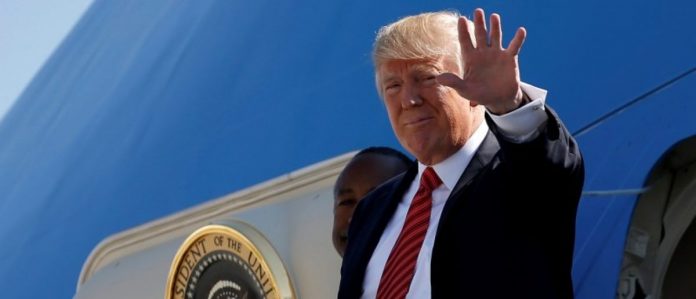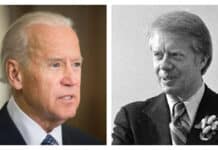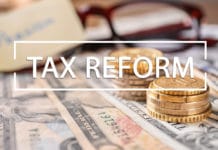
Published in Daily Caller
Not only have President Trump and the leaders of the 115th Congress recently renewed their vows to pass comprehensive tax reform in the short-term, capitalizing on the momentum of their November mandates, but this week the president is scheduled to kick off a strong push to make tax reform a reality with a speech in Missouri. At the same time there is continued progress by the so-called “Big Six” in moving closer to crafting a substantial tax reform bill. Congressional action is a long time coming as our outdated tax system has blotted out economic progress, leaving the national economy with tepid growth in capital markets and capital formation rates that pale in comparison to our top trading partners.
All of this is welcome news as tax reform, especially the kind of reform that positively impacts capital formation, is sorely needed. It is also an encouraging sign to American businesses who have long-awaited the tax relief, stability, and long-term peace of mind that real and permanent tax reform will bring.
Pound for pound, no single issue has more potential to revitalize the American economy than comprehensive tax reform. With thirty years having passed since it was last meaningfully reformed, the current version of the U.S. tax code has long exceeded its useful shelf life. Taxes are often too high and unnecessarily complicated. Our federal government taxes small businesses at a rate that can reach a staggering 44%, including the net investment income tax and levies a rate on larger businesses that is one of the world’s most burdensome. This results not only in major multinational corporations, which employ tens of thousands of American workers, being placed at a disadvantage relative to their foreign competitors, but smaller businesses forced to spend valuable resources on tax bills and tax compliance. In the process, capital formation suffers, snuffing out jobs and leading to an average growth in capital stock of just 1.5 percent since the start of the Great Recession in 2007. Something has to change if the U.S. economy is to grow.
The plans that have been placed on the table by President Trump and congressional leaders are strong steps in the right direction and align well with policy recommendations that ACCF has proposed to streamline our nation’s tax code and orient it toward the formation of capital and the creation of jobs. Lowering tax rates on businesses of all sizes and on individual taxpayers is a good first start, but other proposals also hold incredible potential for kick-starting our economy and inspiring long-term confidence among investors.
For example, we should change the way our tax code treats American businesses that earn income abroad, transitioning from a worldwide tax system to a territorial one. The worldwide tax system we use today taxes all income earned by U.S.-based firms no matter where those revenues were earned, placing American companies at a competitive disadvantage globally. In fact, the U.S. is the only member of the G7 that employs a worldwide tax system. With Republican leadership agreeing the tax code should make it easier for U.S. companies to compete with companies based overseas, a transition to a territorial tax system would be a crucial reform.
Businesses of all sizes, too, would benefit from a provision to allow full and immediate expensing of capital investments. While this approach is sometimes overlooked as a way to spur economic growth, it shouldn’t be. That’s because research from the Tax Foundation shows that updating the tax code to allow full and immediate expensing would have twice the impact on economic growth as simply cutting the corporate tax rate. That research shows that a full and immediate expensing provision would increase after-tax incomes of households by an average of 5.3 percent, compared to a 4 percent gain from cutting the corporate tax rate and 3.6 percent gain from consolidating individual tax brackets.
Whatever tax reform approach the president and lawmakers choose starting in September, permanence is key. American businesses need the confidence it takes to make high levels of investment in machinery and equipment and to keep up with improving technology and increase their productivity. They need a tax code that is oriented toward growth and that is designed for job creation and capital investment. Congress, working alongside President Trump, has a golden opportunity to bring home a win for American businesses and families by passing comprehensive and permanent tax reform. We urge them to act boldly and swiftly.
Pinar Cebi Wilber, Ph.D., is chief economist at the American Council for Capital Formation, a nonprofit organization advocating tax, energy and regulatory policies that facilitate saving and investment, economic growth and job creation.






